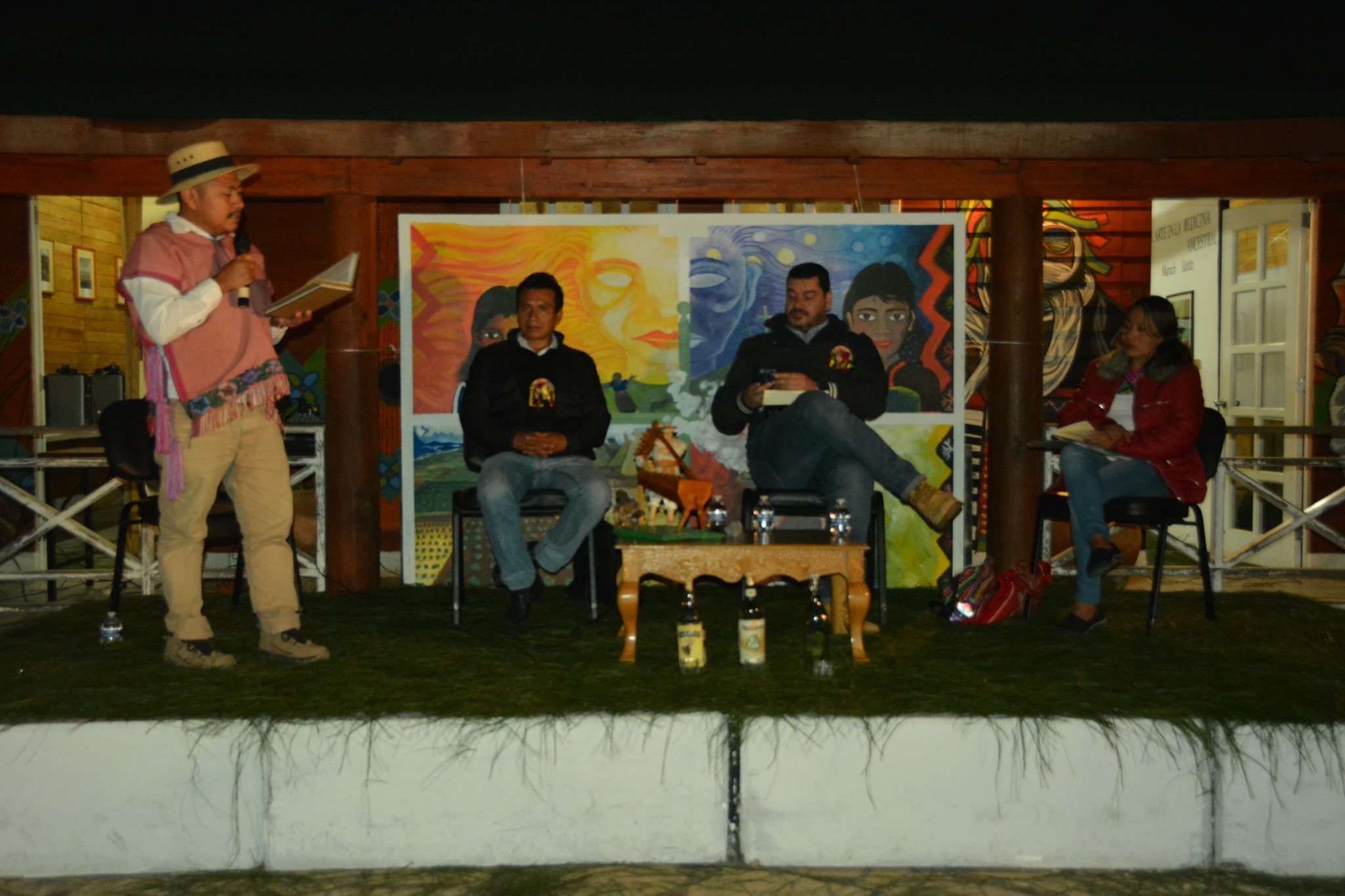Writing the Future in Indigenous Languages
Poetry reading in indigenous languages at San Juan Chamula Chiapas
Meeting of the Translation and Linguistic Rights Committee 2019
PEN International’s 2019 Translation and Linguistic Rights Committee (TLRC) meeting held in San Cristóbal de las Casas, Chiapas, Mexico was themed “Writing the Future in Indigenous Languages” and run from 2-4 May.
Over the course of the meeting more than 50 writers, journalists, translators, activists and editors from across four continents met to participate in debates, literary readings and activities related to linguistic rights in the world; fostering a cultural and literary exchange between PEN’s members and the community of writers from several Mayan languages.
The delegates represented at least 30 of the world’s languages, including tsotsil, tsetsal, mè´phàa, chol, Basque, Innu-aimun, French, Quechua, Mapuche, English, Hindi, Marathi, Galician, Spanish, Catalan, Croatian, bikol, Tibetan, among others.
This exchange coincided with the International Year of Indigenous Languages, designated by UNESCO, whose office in Mexico was a key partner in the organisation of the meeting, along with the University of Science and Arts of Chiapas (Universidad de Ciencias y Artes de Chiapas – UNICACH) and the National Institute of Indigenous Languages (Instituto Nacional de Lenguas Indígenas - INALI).
Speaking at the meeting’s inaugural event, Jennifer Clement, President of PEN International, stated: “Following our Charter, we have affirmed for a Century, that literature knows no frontiers and must remain common currency among people in spite of political or international upheavals. Over the course of a century, we have never recognised the boundaries that separate indigenous literatures from other literatures.”
Representatives of other partners of the meeting also attended the event: José Rodolfo Calvo Fonseca, Rector of the UNICACH; Frédéric Vacheron, Representative of the office of UNESCO in Mexico y Juan Gregorio Regino, director of the INALI.
Simona Skrabec, Chair of the Translation and Linguistic Rights Committee, commented that meetings such as the one held in Chiapas “are extraordinarily important, not just for the organisation, but also in their impact on local spaces.”
Representatives from PEN’s Centres included Nina Jaramillo (PEN Argentina), Iván Prado (PEN Bolivia), Tomica Bajsić (Croatian PEN), Dessale Abraham Berekhet (PEN Eritrea), Frank Peñones (PEN Philippines), Vera Tyhtilä (Finnish PEN), Xabier Castro (PEN Galicia), Eduardo Blandón y Juan Antonio Canel (PEN Guatemala), Natasha Kanapé Fontaine y Louis Jolicoeur (PEN Quebec), Ganesh Devy (PEN South India), Alix Parodi (Pen Suisse Romand), Tsering Kyi (Tibetan Writers Abroad PEN) y Urtzi Urrutikoetxea (Basque PEN).
During the sessions of PEN’s Translation and Linguistic Rights Committee, the Centres developed their plans for future actions and prepared the San Cristóbal de las Casas Declaration on Indigenous Literatures, a document fundamental to the fight for and defence of languages of all peoples of the world.
The Writing the Future in Indigenous Languages meeting also counted on the participation of intellectuals and creatives such as Pedro Cayuqueo (Mapuche journalist, from Chile), Otilia Lux de Coti (a Guatemalan expert on gender issues), and Mayan writers such as Enriqueta Lunez, Ruperta Bautista, Marceal Méndez, Manuel Bolom, Petrona de la Cruz, Juana Karen Peñate, Elías Pérez, Enrique Pérez López, as well as the Nahua poet Natalio Hernández and the Mè’phàa writer Hubert Matiuwáa, alongside Pedro Faro, poet and Director of the Friar Bartolomé de las Casas Centre for Human Rights, among others.
Carles Torner, Executive Director of PEN International, commented during the meeting: “I am especially moved by what we have seen over the course of these days, because we have seen the strong presence within PEN of indigenous literatures.”

